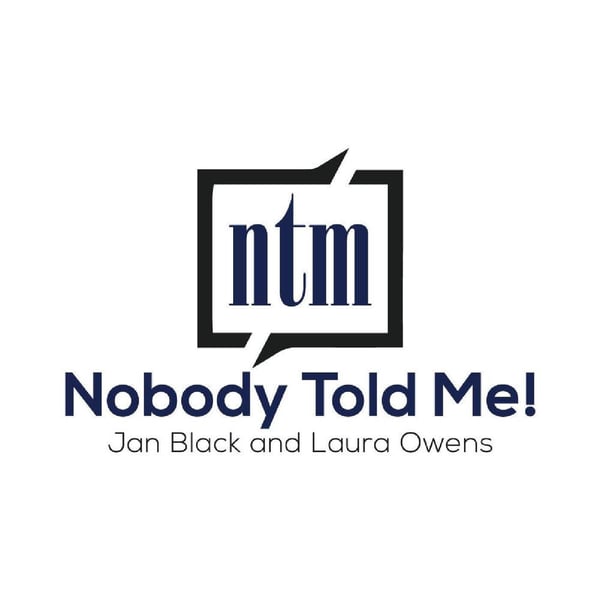Dr. Jim Taylor: ...how to survive and thrive when bad things happen
Nobody Told Me!
Nobody Told Me!
4.2 • 671 Ratings
🗓️ 6 September 2020
⏱️ 39 minutes
🧾️ Download transcript
Summary
It would be hard to get through life without having some sort of a crisis impact you, whether it’s related to your health, finances, relationships, career or personal safety. Most of the time, a crisis, like the COVID-19 pandemic is out of our control, but we can control how we react to it.
For some thoughts on how to do just that, we turn to our guest on this episode, Dr. Jim Taylor, who’s an internationally recognized expert in the psychology of critical performance. He’s the author of 17 books, the latest of which is called, How to Survive and Thrive When Bad Things Happen: 9 Steps to Cultivating an Opportunity Mindset in a Crisis.
*********
Thanks to our sponsor of this episode!
--> Stamps.com: 4 week trial plus free postage and a digital scale without any long-term commitment. Go to stamps.com, click on the microphone at the top of the homepage, and type in NTM.
Learn more about your ad choices. Visit megaphone.fm/adchoices
Transcript
Click on a timestamp to play from that location
| 0:00.0 | Welcome to Nobody Told Me. |
| 0:13.5 | I'm Laura Owens. |
| 0:14.6 | And I'm Jan Black. |
| 0:15.8 | It would be hard to get through life without having some sort of a crisis impact you, |
| 0:20.2 | whether it's related to your |
| 0:21.6 | health, finances, relationships, career, or personal safety. Most of the time, a crisis like |
| 0:27.5 | the COVID-19 pandemic is out of our control, but we can control how we react to it. And for some |
| 0:33.1 | thoughts on how to do just that, we turn to our guest on this episode, Dr. Jim Taylor, who's an internationally |
| 0:39.2 | recognized expert in the psychology of critical performance. He's the author of 17 books, |
| 0:45.3 | the latest of which is called How to Survive and Thrive When Bad Things Happen, Nine |
| 0:51.4 | Steps to Cultivating an Opportunity Mindset in a crisis. Dr. Thank you so much for joining |
| 0:57.3 | us. Great to be here, Lauren, Jen. Thanks for having me. How do you define a crisis? Well, |
| 1:03.1 | it's interesting. We all kind of intuitively know what a crisis feels like when it hits, but we don't |
| 1:08.5 | really think too much about what makes a crisis. So a couple of key things about a crisis. First of all, it's unexpected. Most of the time, |
| 1:16.6 | it's something just happens, whether it's an earthquake, a financial crisis, obviously COVID-19. |
| 1:22.6 | Another thing about a crisis, it creates instability in our lives. It disrupts our lives rather significantly. |
| 1:29.1 | Another key thing, which I'll probably talk about a little later in our podcast, is a key |
| 1:34.2 | aspect of a crisis is that it's unfamiliar, unpredictable, and often uncontrollable. And those are |
| 1:39.9 | three qualities that human beings really don't like. And very importantly, it's experienced as some |
| 1:46.2 | sort of trauma. And the trauma can be physical, psychological, social, political, emotional, |
| 1:51.2 | economic, a lot of different effects on us. But they often have very powerful, significant |
| 1:57.1 | effects on us immediately, psychological and emotionally, and potentially long-term |
... |
Please login to see the full transcript.
Disclaimer: The podcast and artwork embedded on this page are from Nobody Told Me!, and are the property of its owner and not affiliated with or endorsed by Tapesearch.
Generated transcripts are the property of Nobody Told Me! and are distributed freely under the Fair Use doctrine. Transcripts generated by Tapesearch are not guaranteed to be accurate.
Copyright © Tapesearch 2025.

